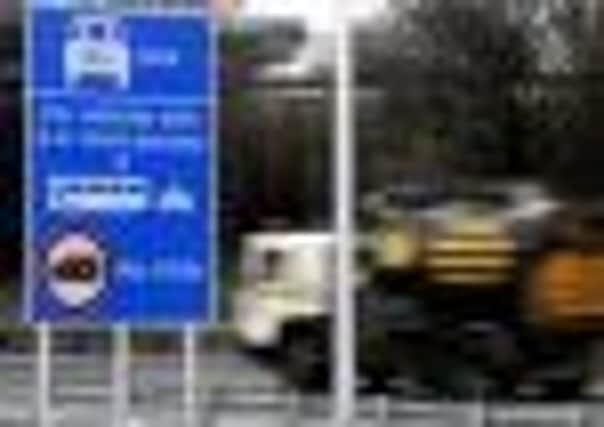Huge waste of taxpayers’ money as drivers flout car share rules


On one of the routes, which was built as part of a £31.6m scheme to promote business growth, police have fined only four drivers in two and a half years for travelling without a passenger.
Little is being done to deter motorists who ignore the rules at other locations either, with fines typically being issued at a rate of one per month on some roads.
Advertisement
Hide AdAdvertisement
Hide AdThe figures, obtained by the Yorkshire Post under freedom of information legislation, have incensed a motorists’ campaign group which claims road restrictions have only made congestion problems worse.
Three of Yorkshire’s car-sharing, or ‘2+’, lanes are on major commuter routes into Leeds. They include the first such traffic scheme in the UK – on the A647 Stanningley Road – which opened in May 1998 after £700,000 was secured from the Government and European funding. A fourth 2+ lane operates near Bradford on the M606 motorway, where it links with the M62.
West Yorkshire Police records show 767 fines – about 10 a month – have been given to motorists flouting the 2+ rules on the A647 since records began in December 2004. But there has been considerably less police activity on the two other 2+ routes in Leeds – the A63 East Leeds Link road (ELL) and the A58 Roundhay Road.
Officers monitoring the ELL 2+ lane, which is designed to alleviate congestion in the east of the city and “invigorate the regeneration of the Aire Valley”, have issued four fines since it opened in February 2009, collecting £120.
Advertisement
Hide AdAdvertisement
Hide AdThe lane was built as part of a scheme which cost £31.6m, of which two-thirds came from public funds and the remainder was contributed by developers. Only two fines, totalling £60, have been given to motorists abusing the 2+ lane on the A58, which opened in February. A spokeswoman for the council said its analysis of the A647 had shown “positive results” including a 20 per cent increase in bus use in the morning peak and an increase in car sharing.
“The Roundhay Road lane only opened in February and the first substantive monitoring will occur after 6 months (in September),” she added. “Preliminary indications are that bus reliability has increased and it has had a positive effect on the journey times for other vehicles.
“The A63 ELL has successfully ‘pulled in’ traffic from other less appropriate roads and traffic continues to grow against a background of an overall reduction in traffic levels. As new developments occur over the next few years the priority lane will become more attractive and provide greater benefits.”
Thirty-nine motorists have been fined a total of £1,590 for using the 1.7-mile car-sharing lane on the M606 illegally since it opened in March 2008. Three northern regional development agencies, including Yorkshire Forward, contributed £5.33m towards the cost of the scheme,
Advertisement
Hide AdAdvertisement
Hide AdThe Highways Agency said analysis showed drivers using the lane for peak-time journeys saved up to eight minutes on average. And, although banned from using the 2+ lane, sole motorists also benefited with their journey times typically being reduced by up to five minutes during peak hours. Restrictions are in force 24 hours a day on the M606 and A58, and between 7am and 10am and 4pm and 7pm on weekdays on the A647 and A63.
Brian MacDowall, a director of the Association of British Drivers, said: “This is an absolute waste of capacity and a chronic waste of taxpayers’ money. These lanes are built to ease congestion in one of our biggest cities and they are simply not answering the problem.”
A spokeswoman for West Yorkshire Police said it policed car-sharing lanes as part of its “day-to-day work”.
“We do not have specific officers policing the lanes,” the spokeswoman added. “If officers see people breaking the regulations they will take suitable action.”